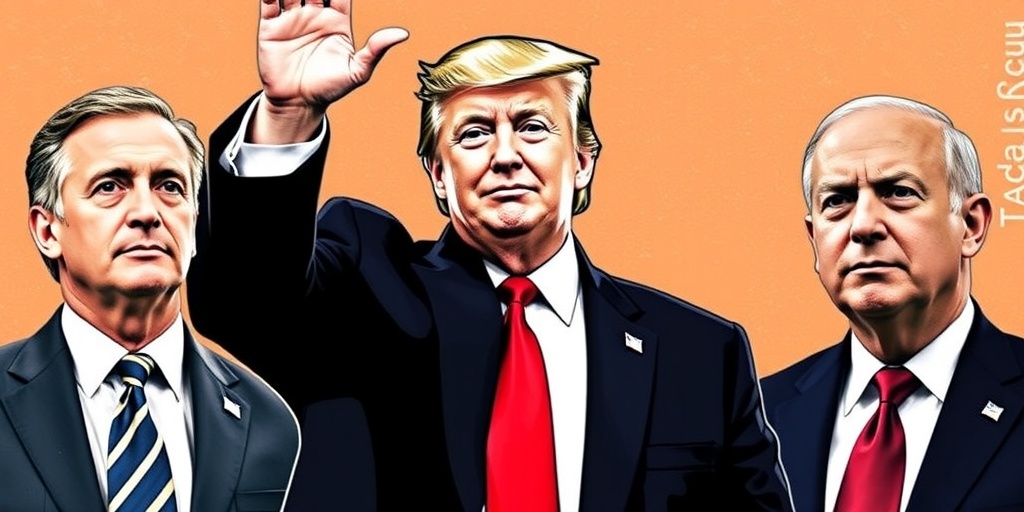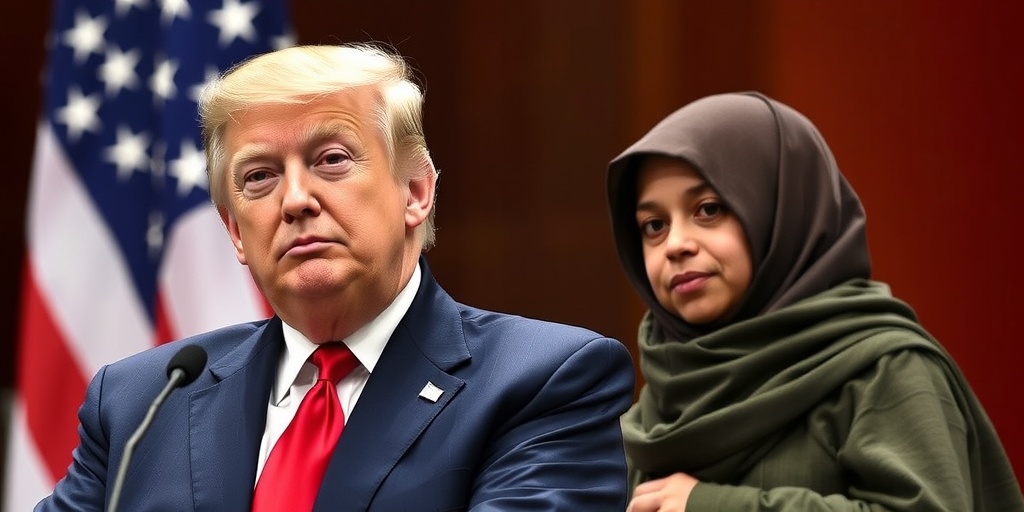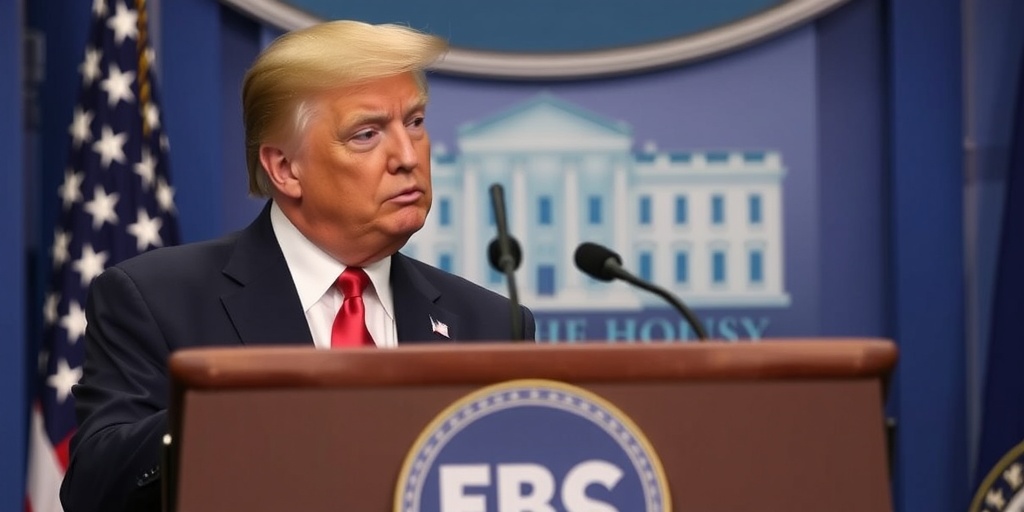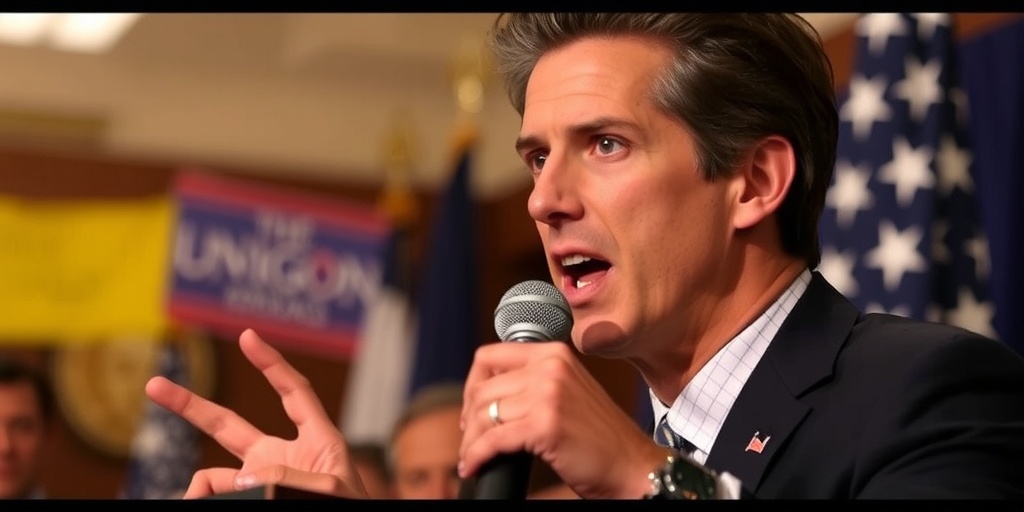Now Reading: Trump’s Influence on Aspiring Authoritarians Worldwide
-
01
Trump’s Influence on Aspiring Authoritarians Worldwide
Trump’s Influence on Aspiring Authoritarians Worldwide

Title: Shifts in U.S. Foreign Policy: A New Era of Autocratic Endorsement
In a notable reversal of American diplomatic practices, President Donald Trump, during a recent White House meeting with U.S. ambassadors, referred to Turkish President Recep Tayyip Erdogan as “a good leader.” This assessment starkly contrasts with the approach taken by his predecessor, President Joseph R. Biden Jr., who excluded Erdogan from his democracy summits in 2021 and 2023, publicly labeling him an “autocrat” deserving of electoral ousting. Trump’s comments emerge amidst ongoing turmoil in Turkey, marked by widespread protests following the arrest of the Istanbul mayor, a leading political rival of Erdogan.
Trump’s embrace of autocratic leaders represents a significant departure from decades of bipartisan American policy that prioritized the promotion and reinforcement of democratic structures worldwide. Instead of condemning leaders who exhibit authoritarian tendencies, Trump’s administration has fostered relationships with those who suppress democratic values. This shift is significant as it signals a broader endorsement of authoritarian leadership styles, which could inspire similar behavior from other elected officials worldwide.
Rosa Balfour, the Europe director for the Carnegie Endowment for International Peace, highlighted the implications of Trump’s rhetoric, noting that his words have a considerable impact in Europe. “What Trump says reverberates strongly here,” Balfour remarked, adding that the U.S. has failed to impose consequences for actions that undermine the rule of law or democratic norms. This absence of repercussions emboldens leaders who seek to consolidate power at the expense of democratic integrity.
The stance taken by Trump is congruent with actions from various leaders across the globe. For instance, in Serbia, President Aleksandar Vucic has spent years eroding democratic institutions while justifying actions against political opponents and the media in part by referencing Trump’s policies. As Trump dismantled the U.S. Agency for International Development, Vucic intensified his crackdown on NGOs that received U.S. funding, asserting that these actions were essential for rooting out corruption.
Former Congresswoman Jane Harman also noted the ongoing erosion of democratic values, indicating that leaders like Erdogan have been gradually distancing themselves from democratic principles over the years. She provided a historical context, tracing Erdogan’s tightening grip on power back to the 2016 coup attempt against him, after which he strengthened the presidency and suppressed dissent through attacks on media and judiciary.
While Trump’s resurgence to power is influencing global attitudes towards democracy, Harman stressed that this trend did not originate with him, nor will it conclude with his leadership. Some nations are responding to Trump’s influence by critically evaluating their own trajectories towards authoritarianism. For example, recent elections in Germany demonstrated a cautious electorate that resisted extreme far-right candidates, potentially reflecting a backlash against Trump’s ideological shift.
Critically, Trump is not alone in overlooking democratic virtues for strategic alliances. Biden himself offered a fist-bump to Saudi Arabia’s Crown Prince Mohammed bin Salman, despite holding him accountable for the murder of journalist Jamal Khashoggi. Biden has also maintained relationships with leaders like India’s Prime Minister Narendra Modi, who has witnessed rising dissent suppression.
However, Trump’s administration is distinct in its apparent endorsement of autocratic leaders and policies. Netanyahu’s government in Israel has similarly faced a diminished level of scrutiny from Biden, paving the way for significant judicial reforms that many believe threaten the independence of Israel’s judiciary. Netanyahu’s recent decisions, including the dismissal of intelligence officials and efforts to enhance governmental control over judicial appointments, reflect his confidence in an environment where U.S. opposition is notably lacking.
This global tolerance for autocratic governance has significant implications for international relations. Observers argue that nations will no longer fear consequences when moving towards authoritarianism as long as U.S. leadership does not bear down on such actions. Balfour pointed out that Netanyahu feels he has license to act without accountability.
In Serbia, Vucic’s strategies of attacking opposition parties and civil society organizations can be traced back to the emboldened rhetoric emanating from the Trump administration. This alignment is evident in the statements from Trump’s eldest son, Donald Trump Jr., who recently affirmed Vucic’s actions as an embodiment of “law and order” and criticized dissenters, mirroring the rhetoric used by his father.
As these trends unfold, experts are increasingly concerned about the implications of a U.S. foreign policy that appears to condone or even endorse authoritarianism. Ruth Ben-Ghiat, a historian at New York University, warned that Trump’s lack of critique regarding Erdogan’s repression signals to other leaders that they may act with impunity. She elucidated, “The U.S. is now seen as an autocratic ally, and there will be no consequences for repressive behavior.”
In summary, the transformation of U.S. foreign policy under Trump’s administration highlights a troubling shift towards endorsing leaders who prioritize autocracy over democracy, raising alarms about the future state of global governance and democratic integrity.
Stay Informed With the Latest & Most Important News
Previous Post
Next Post
-
 01New technology breakthrough has everyone talking right now
01New technology breakthrough has everyone talking right now -
 02Unbelievable life hack everyone needs to try today
02Unbelievable life hack everyone needs to try today -
 03Fascinating discovery found buried deep beneath the ocean
03Fascinating discovery found buried deep beneath the ocean -
 04Man invents genius device that solves everyday problems
04Man invents genius device that solves everyday problems -
 05Shocking discovery that changes what we know forever
05Shocking discovery that changes what we know forever -
 06Internet goes wild over celebrity’s unexpected fashion choice
06Internet goes wild over celebrity’s unexpected fashion choice -
 07Rare animal sighting stuns scientists and wildlife lovers
07Rare animal sighting stuns scientists and wildlife lovers





















